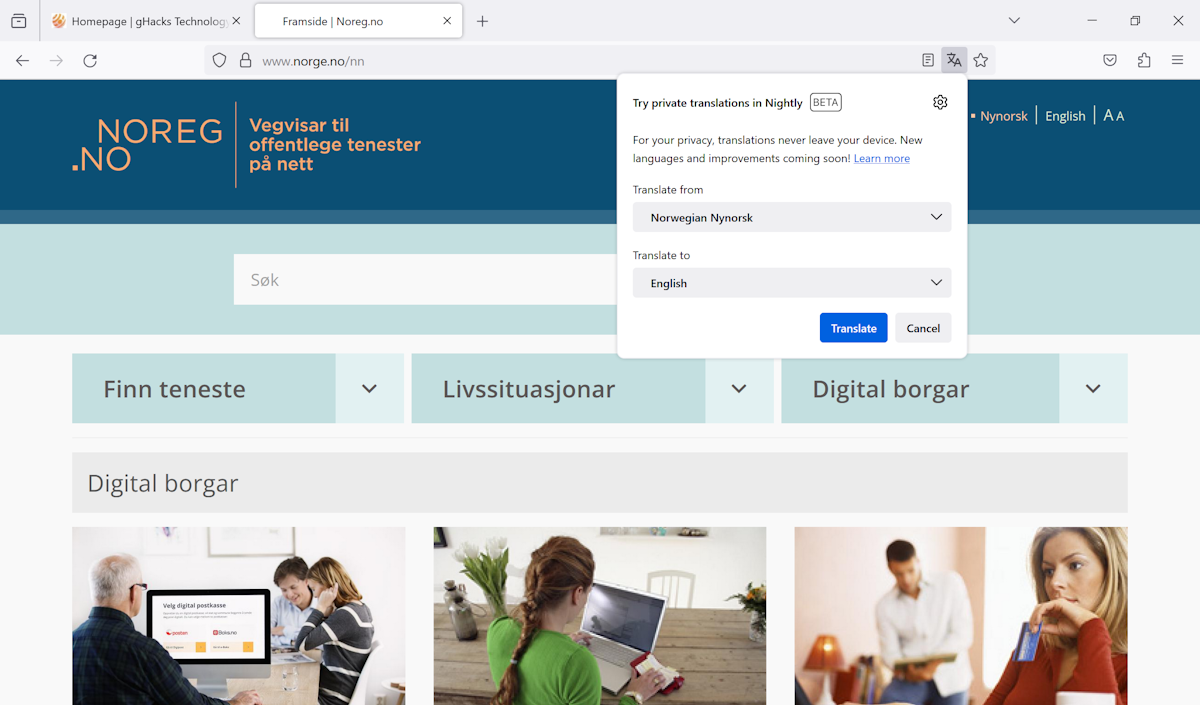Mozilla introduced a local translation feature in the organization's Firefox web browser recently. Local translations are the holy grail when it comes to privacy. Integrated cloud-translate features such as Google Translate require an active Internet connection to submit all data to remote servers where the translation jobs run.
Firefox Translations is different. It uses language packs, which users download once to the local system. Once done, translations happen locally in the browser. In other words, no server connections are needed. This means that information about the content that is translated stays on the user's system and is not passed to the company that operates the translation service.
Firefox 118: introduction of translation services
Mozilla Firefox 118 shipped with support for less than a dozen languages. The supported languages were English, German, French, Italian, Spanish, Portuguese, Dutch, Polish and Bulgarian. Users of the browser get a translate bar at the top of foreign language pages that are supported by Firefox Translations. They may then use controls to translate the page, always translate content of the specific language or hide future prompts for that language.
Lack of support is problematic, as it leaves users without translation options. These need to install browser extensions, which do require connections to translation servers, to translate the languages that Firefox does not support natively.
Firefox 120 Nightly: Improved translations support

The latest Nightly version of Firefox doubles the number of supported languages. The new languages that are now available are: Catalan, Czech, Estonian, Finnish, Hungarian, Icelandic, Norwegian (Bokmål and Nynorsk), Persian, Russian, Ukrainian.
Firefox users who visit a website in one of the new languages will receive translation prompts. The process is identical, which means that a language pack needs to be downloaded the first time a language is translated.
Mozilla notes that these languages do require some work and that they are not ready for integration in Firefox Stable. The quality of translations may not be up-to-par with that of the Stable languages.
Still, launch of the new languages in Firefox Nightly gives users an option to use these languages in translate tasks before they land in Firefox Stable eventually.
Mozilla has not posted a schedule, but it is clear that this integration won't happen in 2023.
Closing Words
Firefox's Translations feature is making progress, which is good. There is still lots of work to be done as language support is still severely lacking. Still, Mozilla is on the right path and will hopefully continue to put development resources into the feature.
Now You: have you tried Firefox's translations feature?
Thank you for being a Ghacks reader. The post Mozilla doubles Firefox Translations languages in Firefox Nightly appeared first on gHacks Technology News.

0 Commentaires